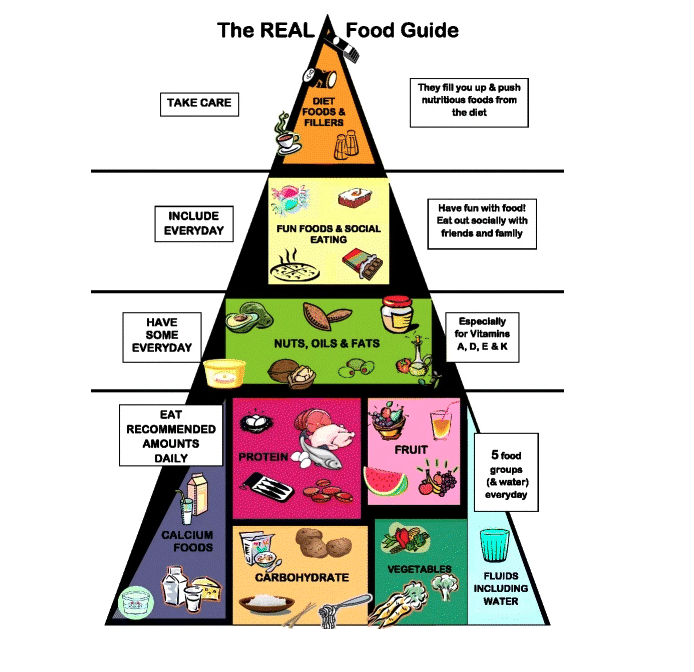
When you are working on recovery, having the knowledge on how to write a recovery meal plan for anorexia and other eating disorders can be incredibly empowering. In this blog post we will take a detailed look at what you need in your recovery meal plan, when you need it and how to plan this out.
There is definately a time and a place for meal plans for anorexia and all eating disorders. At the start of the recovery journey having a more structured plan can feel safe and bring confidence. Later in recovery, it is time to work on trusting your own internal cues and being more flexible with food. In the middle of this process is the grey area. The time where you want to start experimenting and eating off your meal plan, but a rough guide can be handy.
As an eating disorder dietitian you may think I would spend a fair amount of my time writing out meal plans. I do and I don’t. My aim is to empower you to be able to do that yourself. I’m here to support, encourage and affirm that you are doing it right. I provide the education and skills to you, to put myself out of a job!
This is a key question. If the meal plan needed to help you eat enough, to give guidance on the balance at meals and to initiate routine? Then this sounds useful. If the meal plan is there to help you eat at meals, to prevent hunger swings and work on reducing binges, then this is also helpful. If the meal plan is stopping you listening to your hunger cues or eating something spontanously, then that’s less benefical. I often describe a meal plan as being the bread and butter of what you eat. You are free to add extra toppings too as food is not just abour nutrition. It also provides us with enjoyment, socialisation and memories.
There are different types of eating disorders which can require different approaches to treatment, including the meal plans. This is one reason working with a specialist eating disorder dietitian can be so important.
We are not going to focus on these more specialist meal plans in this article. Please do work with a specialist team on your individualised meal plan for anorexia nervosa if you fall into the above categories.
An eating disorder meal plan should provide a balanced range of all the main nutrients the body needs for health as well as healing and renourishing. If you need to weight restore your energy needs are going to be higher which may mean you need 1.5 – 3 times someone else. Remember this is for a season and your meal plan can be adjusted throughout your recovery.
If you are working on normalising your food intake or stopping binges then you may not have as high needs as described above. Regular meals and snacks, eating enough, with the balance of food groups are going to be your key focus.
Whilst I don’t like food rules this is one is more of a guide that works nicely and is easy to remember.
This could therefore look like:
Breakfast at 7am
Lunch at 12.30pm
So you can see it is fluid, depending on what you are doing in your day. It is still key to eat all your meals and snacks, whatever happens in your day. So if you miss a snack, simply add it onto a meal or eat it when you can.
Often when I am working with clients they are not happy with the idea of snacks. This could be because they are not used to snacks, they see snacks as “bad food” or it just feels like too much food. Some people say “but I will always be eating”. That is actually part of the point. We want your body to feel safe. Knowing it is getting enough nutrition in at regular points in the day helps with this. See the snacks as mini-meals, they can include all foods.
Balancing those foods groups in your snacks is also a good idea. Try pairing a fruit/vegetable with a protein, a fruit/vegetable with a carbohydrate or a protein with a carb food.
It is important to get a balance of food groups at each meal. This is where the recovery food pyramid can be helpful.
This is a great visual guide to show the main food groups to include at each meal (bottom of the pyramid), them foods to have everyday and those to be more careful with.

There is no set number as all bodies are different. The key is to make a start and review your progress. This is where working with a specialist dietitian can be so helpful. Calories are only a rough guide and only shows the energy you are eating. Remember how key it is to meet all your nutritional needs.
General portion advice can be found on the back of food packets or you can look at portion guides online from reputable sources. However during weight restoration your anorexia meal plan may well need your portion sizes to be larger. Whilst this can feel alarming and overwhelming it is not forever. This is a stage and later in recovery you will be able to make adjustments to your portions.
This is going to depend on where you are in recovery. Initally you may need to stay on your recovery meal plan for anorexia and eating disorders for some time. When your weight is stable, any binges and other behaviours are settled then you are probable ready to start working on fear foods and flexibility in your eating. Remember the long term aim is to not have a strict meal plan, but to eat regularly, in a balanced way and to be free to eat all foods!